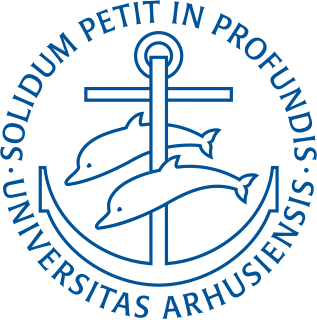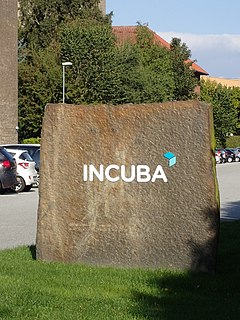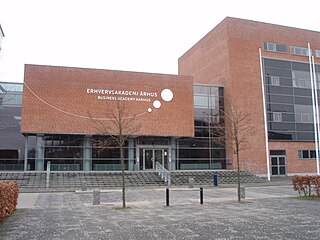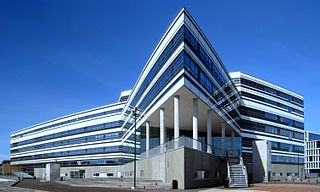
Located in the campus of Science and Technology of the University of Lille in Villeneuve-d'Ascq ; École Centrale de Lille is a renowned graduate engineering school, with roots back to 1854 as the École des arts industriels et des mines de Lille, re-organised in 1872 as Institut industriel du Nord. It is one of the Centrale Graduate Schools.

The University of Akureyri was founded in 1987 in the town of Akureyri in the northeastern part of Iceland. It is today a school of health sciences, humanities and social science, and a school of business and science. Over 2000 students attended the university in the autumn semester of 2014, around half of them through distance education, making the university the largest provider of distance education in the country. The University of Akureyri coordinates with other Icelandic Universities to operate the University Centre of the Westfjords located in Ísafjörður, which operates two master's degrees, one in Coastal and Marine Management and the other in Marine Innovation. Additionally, The University of Akureyri coordinates with other Nordic Universities for the West Nordic Studies and Polar Law Masters programs.

Aarhus University is the largest and second oldest research university in Denmark. The university belongs to the Coimbra Group, the Guild, and Utrecht Network of European universities and is a member of the European University Association.
Education in Denmark is compulsory for children below the age of 15 or 16, even though it is not compulsory to attend Folkeskole. The school years up to the age of fifteen/sixteen are known as Folkeskole, since any education has to match the level offered there. About 82% of young people take further education in addition to this. Government-funded education is usually free of charge and open to all. Denmark has a tradition of private schools and about 15.6% of all children at basic school level attend private schools, which are supported by a voucher system.
Industrial arts is an educational program which features fabrication of objects in wood or metal using a variety of hand, power, or machine tools. Industrial Arts is commonly referred to as Technology Education. It may include small engine repair and automobile maintenance, and all programs usually cover technical drawing as part of the curricula. As an educational term, industrial arts dates from 1904 when Charles R. Richards of Teachers College, Columbia University, New York suggested it to replace manual training.

Gaziantep University is a public university in Gaziantep, Turkey. Gaziantep University has 10 faculties, containing a total of 22 academic departments, with a strong emphasis on scientific and technological research.

The Faculty of Technical Sciences is a higher education institution located in Novi Sad, an independent part of the University of Novi Sad. It was founded in 1960 and today, with about 1200 employees and almost 14,000 students, is one of the largest faculties in the region. Until now, 90 study programs for academic and professional studies have been accredited.

The Technische Universität Ilmenau is a German public research university located in Ilmenau, Thuringia, Germany. Founded in 1894, it has five academic departments (faculties) with about 7,200 students.

Department of Business Development and Technology is a university department centre for research and higher education under Aarhus University, located in Herning, Denmark. BTECH's focus is on education excellence and offers six undergraduate and two graduate study programmes as well as a number of part-time studies all within the fields of engineering, business economics, management and communication and multimedia.

Aarhus Docklands is a new neighbourhood and construction site in Aarhus, Denmark.
VIA University College is a university college organisation in Central Denmark Region, Denmark, established in January 2008. It is present in the region with a total of eight campuses.

Deaconal University College is a folk high school and university college in Højbjerg; a southern district of Aarhus, Denmark.

INCUBA Science Park is a research park in Aarhus, Denmark with four departments in Skejby, Katrinebjerg, Aarhus University and Aarhus Docklands.

Business Academy Aarhus is a school of higher education in Aarhus, Denmark founded on 1 January 2009. The academy is an independent self-owning institution subordinated to the Ministry of Science, Innovation and Higher Education. Degree programmes offered are mainly applied degrees, especially in technology, IT and business. The academy grants undergraduate and academic degrees but not master's or doctoral degrees. In addition to full-time studies the academy offers supplemental education, part-time programmes at bachelor's level and short-term courses for people who need to strengthen their qualifications. The academy is one of the largest business academies in Denmark.

The Aarhus Academy is a school of secondary education in Aarhus, Denmark. The school offers the 2 year Higher Preparatory Examination (HF) programme, the 2 year Matriculation examination (STX) programme and supplementary courses in specific disciplines. Aarhus Academy is located in the neighborhood of Christiansbjerg in the city district of Aarhus N.

Århus Statsgymnasium is a school of secondary education and a Danish Gymnasium in the neighborhood Hasle in Aarhus, Denmark. The school offers the 3 year Matriculation examination (STX) programme. It was the third Gymnasium to be built in or around Aarhus and the 38th State Gymnasium in country. The school is an independent self-owning institution under the Danish state with about 800 students divided across 30 classes.

VUC Aarhus is a school of secondary education in Aarhus, Denmark. The school offers the 2 year Higher Preparatory Examination (HF) programme and supplementary courses (GSK) to the Matriculation examination (STX) within a range of disciplines. The school has since 2007 been an independent self-owning educational institution under the supervision of the state, managed by a board in conjunction with a principal who manages the day-to-day operations.
AU Engineering is an umbrella organisation of engineering under Aarhus University. It was established in 2011 and currently comprise two engineering organisations; Department of Engineering (ENG) and Aarhus University School of Engineering (ASE).

Navitas is a building in the city of Aarhus, Denmark, located in the Docklands neighborhood in the Midtbyen district. Navitas is owned by the research park INCUBA Science Park, the Aarhus University School of Engineering and the Aarhus School of Marine and Technical Engineering. The three institutions together operate a consortium that maintains the facilities and together they inhabit the building.
















